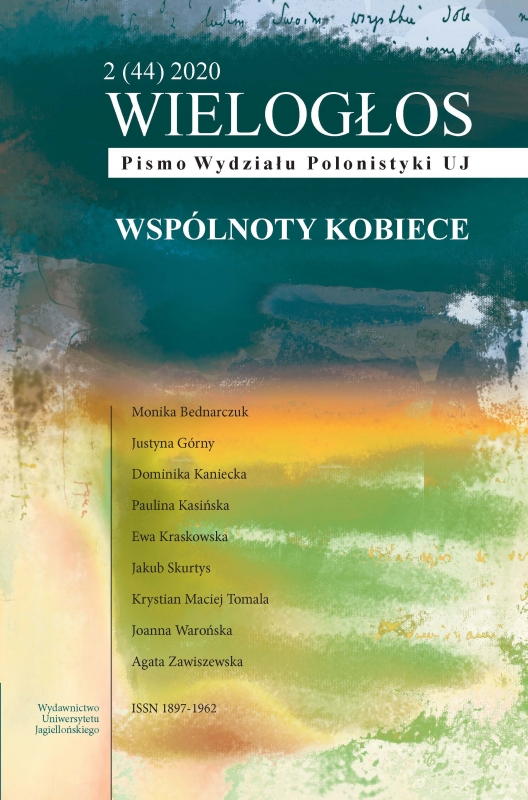Trauma Zagłady a seksualność. Wspólnota matki i córki w prozie biograficznej Helen Epstein
Holocaust Trauma and Sexuality: Mother-Daughter Relationship in Helen Epstein’s Biographical Prose
Author(s): Paulina KasińskaSubject(s): Language and Literature Studies
Published by: Wydawnictwo Uniwersytetu Jagiellońskiego
Keywords: Helen Epstein; trauma Zagłady; seksualność; drugie pokolenie; postpamięć; Helen Epstein; Holocaust trauma; sexuality; the second generation; postmemory
Summary/Abstract: In Children of the Holocaust (1979), Where She Came From: A Daughter’s Search for Her Mother’s History (1997) and The Long Half-Lives of Love and Trauma (2017), Helen Epstein shows an unusual bond created between her and her mother – Franci Epstein, a Jewish Holocaust survivor. The bond was so strong that it led to the phenomenon of identification which resulted in many negative consequences. On the one hand, it put the daughter’s experiences in danger of being appropriated by her mother, but on the other, it contributed to the developing bodily symptoms that seem to have been inspired by the camp experience of her mother. The relationship between Franci and Helen proves that the community can be seen not only as a way of restoring bonds of transgenerational communication, even if they appear as a form of postmemory (Marianne Hirsch) or rememories (Toni Morrison), but it can also create completely new traumas.
Journal: Wielogłos
- Issue Year: 2020
- Issue No: 44
- Page Range: 131-149
- Page Count: 19
- Language: Polish

